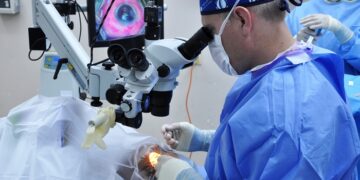Recently, almost every adult sometimes has digestive problems – he is tormented by bloating, stool disorders, spasms in the intestines, and fatigue. Unfortunately, such manifestations of disorders in the work of the gastrointestinal tract are now familiar even for children. The poor operation of the digestive system leads to the fact that the body begins not to receive from food all those nutrients that could be obtained, which, of course, leads to various diseases. But is it possible to somehow break this vicious circle and improve the operation of the digestive system? This article will be devoted to the answer to this question.
How to improve the digestive system
The first step to normalizing the digestive tract should be the elimination of the reasons that lead to this.
The very first enemy of digestion is smoking that irritates the gastric mucosa and provokes the development of heartburn, gastritis or ulcers. In addition, smoking can contribute to the development of cancer diseases of the gastrointestinal tract.
The next enemy of the digestive system is stress, which contributes to the development of many serious diseases, for example, it can cause irritable intestine syndrome. And this disease is treated hard and for a long time, and, unfortunately, not always successful.
Frequent consumption of coffee can also provoke the development of gastrointestinal problems, so all lovers of coffee, and, especially strong, should remember that you should not drink more than three mugs of this invigorating drink per day.
A sedentary lifestyle also does not bring health to a person and provokes his development of many different ailments, including diseases of the stomach and intestines.
And, of course, if you want to keep your health, give up such a bad habit as drinking alcoholic beverages. As everyone knows, excessive and frequent use of alcohol leads to diseases of the liver, stomach, pancreas, intestines and many others.
How to improve the digestive system
In addition, to improve the digestive system, it is advisable to adhere to the following rules.
From childhood, we have heard that food needs to be chewed carefully. It is not for nothing that folk wisdom says that “whoever chews for a long time lives for a long time”. But which of us adheres to this rule in life? We are constantly in a hurry, haste and chew food almost on the go, than we break the digestion process, which begins already in the oral cavity.
We also probably know that you should not swallow big pieces. But, nevertheless, many continue to do this. And in vain – when swallowing large pieces of food, along with food, air enters the stomach, and this, in turn, leads to flatulence, excess gas formation and pain.
Eat as many vegetables and fruits as possible – they contain fiber, which prevents the appearance of constipation. By the way, doctors do not recommend consuming fruits with another food – it is advisable to eat them separately. Try to eat more bananas, pears, apples, watermelons, apricots, blueberries and strawberries.
To maintain good health and normal digestion, it is necessary to use a lot of liquids. Moreover, it is advisable to drink not juices, tea, compote or coffee, but ordinary simple water without gas.
Try to sometimes pamper yourself with ginger spices, which improves digestion and eliminates spasms and pain.
If you like to drink mint tea, then know that it is not only tasty, but also useful. Mint, basil and chamomile have the ability to calm the irritated stomach and improve its work. Some doctors even advise sometimes chewing mint leaves.
How to improve the digestive system
A good dream is also very important in maintaining the health of the digestive system and health in general. Remember that sleeping less than seven to eight hours is harmful to the body.
And finally, the last advice to help you improve the work of your stomach and intestines. It is very simple – do not forget about hygiene and always wash your hands with soap before meals and before cooking. Performing this simple rule will help you avoid the ingress of various pathogenic bacteria and microorganisms that can cause diseases of the gastrointestinal tract.
















